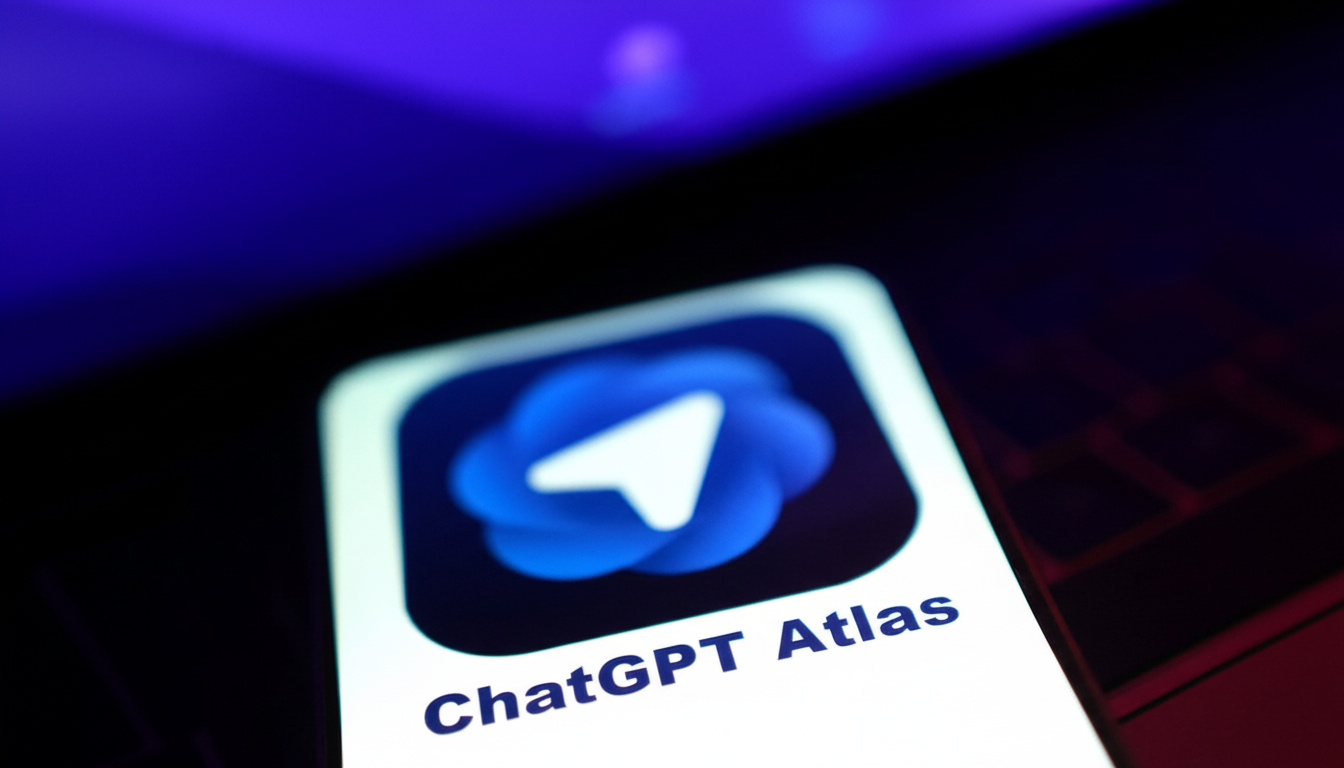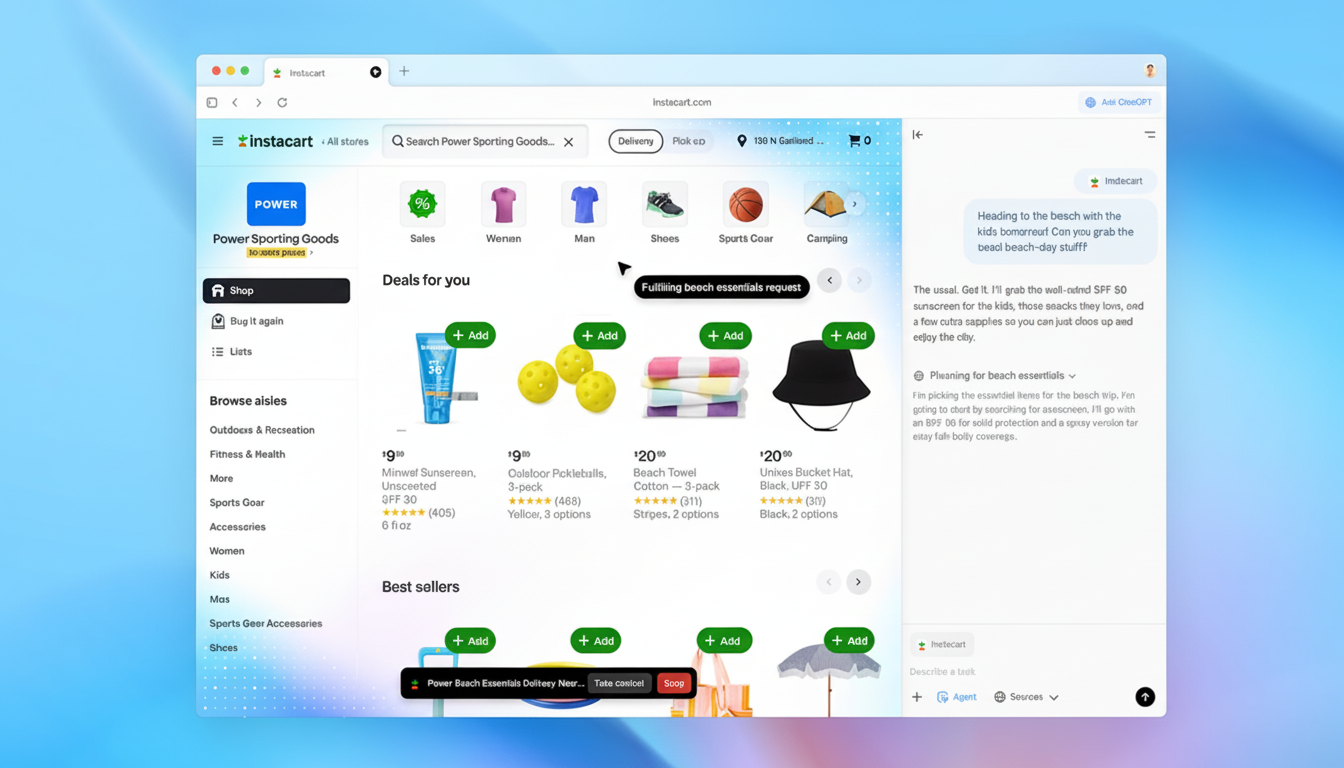OpenAI’s releasing its new ChatGPT Atlas browser and the team is already preparing to unleash a wave of updates.
Product lead Adam Fry detailed a near-term roadmap that focuses on polish of core browsing as well as smarter, AI-assisted workflows, with heftier lifts like tab groups, multiple profiles, and a native ad blocker all to roll out in the more distant future. The Mac app is just the beginning; Windows, Android, and iOS are on the roadmap but not quite yet.

What OpenAI Says Comes Next For The Atlas Browser
Fry said in a public thread seeking user feedback that practical quality-of-life improvements will be rolling out in the next few weeks. Some of the most frequent requests so far: a keyboard shortcut to reopen last-visited ‘tabs’ that were closed, bigger compatibility with extensions. Look for a constant pace of fixes oriented at stability and responsiveness, as early adopters take Atlas through real-world use in everything from research to shopping to productivity tasks.
Outside of standard browser polish, OpenAI is also embracing what makes Atlas special—its tight coupling with ChatGPT. One such feature that we are interested in is to include multiple open tabs as part of ChatGPT’s context so the assistant can reason across different sources. That sort of multi-document grounding has the potential to make Atlas particularly useful for comparative research, trip-planning, and complex workflows where users have previously bounced between a constellation of tools.
Bigger Features On A Longer Timeline For Atlas
Some headline capabilities will take longer to arrive, Fry said. Profiles, tab grouping, and an ad blocker within the browser are on the roadmap, not necessarily in the imminent ship list. For power users, those features are not just conveniences: profiles allow users to keep work separate from personal; tab groups are a way to manage sprawling sessions, and the built-in ad blocker can help make pages load faster by removing unwanted material as well as reduce distraction without paying for third-party add-ons.
The sequencing makes sense. Profiles and tab groups influence every aspect of the user model and UI, while an in-house ad blocker demands thoughtful engineering around speed, privacy, and publisher-centric considerations. By putting priorities up front, OpenAI seeks to signal that it is serious about doing so in a transparent way that more AI-native products are embracing as features evolve in plain view of the world.
Cross-Platform Plans And Extension Support
Atlas is out now on Mac, and the team says Windows, Android, and iOS are essential platforms.

That expansion will be crucial for mainstream adoption — Windows commands about 72% of desktop OS share worldwide, according to StatCounter, and mobile is the de facto computing surface for much of the population in developed and emerging markets. If you really wanted all that, a universal, cross-platform Atlas with uniform ChatGPT behaviors would make it more appealing almost instantly.
It is also a strategic lever to the support of extensions. The modern browser operates and survives by its ecosystem, and improved compatibility gives the user increased runway to bring legacy workflow into Atlas. You can expect the team to focus on well-liked utilities in areas like password management, note-taking, automation, and privacy (as well as making sure that extensions are aware of AI-powered items like page summaries and autonomous actions).
Why These Upgrades Matter For Atlas And Users
Atlas is entering a market dominated by sticky competition – Chrome alone holds nearly two-thirds of global share according to StatCounter, so differentiation (whether it’s the privacy-first play revealed today or something else at launch in 2022) is a table stakes.
In that realm, joys such as multi-tab context injection and robust tab management aren’t merely amenities; they serve as scaffolding for trustable execution of AI tasks. A browser that remembers what you were doing across tabs, gets related context when you need it, and automates repetitive steps can cut minutes off of repetitive research or procurement tasks. The value accrues as customers entrust the agent with bigger parts of their day.
What To Watch Next As Atlas Evolves Post-Launch
In the short term, expect rapid iteration on stability, shortcuts, and extension support along with incremental improvements in how ChatGPT understands and incorporates on-page context. In the medium run, profiles, tab groups, and a built-in ad blocker will decide whether Atlas can turn from curiosity to default browser for demanding users.
The longer game is parity across platforms and a stated vision for how AI agents can act on users’ behalf without compromising their safety. If OpenAI can get a competent Chromium shell, reliable automation, and smooth sync running across Mac, Windows, Android, and iOS together with Atlas turning from an AI funhouse into a daily driver. For now, the mission’s clear: It’s post-launch momentum, and user feedback is guiding whatever sprints come next.

